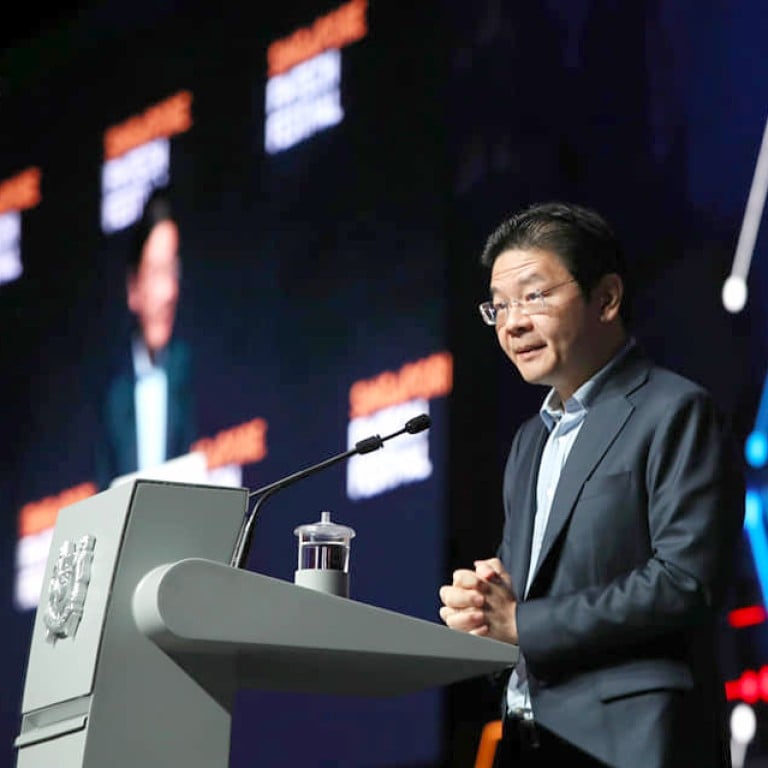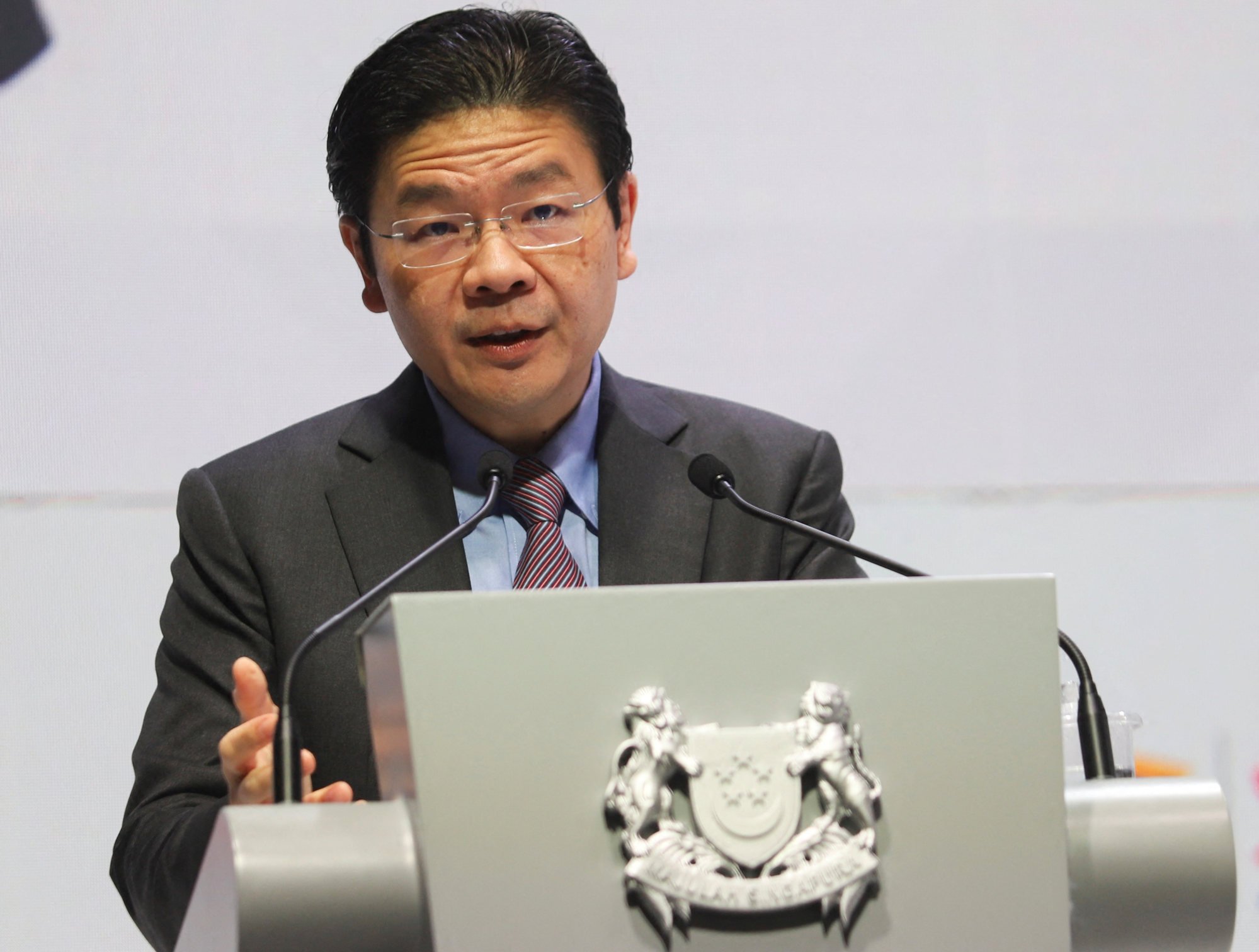
Crypto speculation, CBDCs, talent crunch in focus at Singapore fintech festival
- Should be ‘no doubt’ Singapore embracing emerging tech such as Web3 and blockchain, PM-in-waiting Lawrence Wong says, even as ‘constructive paranoia’ is needed
- Topics in focus at the Singapore Fintech Festival 2022 include retail central bank digital currencies and talent crunch in the sector
Singapore’s hopes to spur “innovative and responsible” digital asset activities while keeping a lid on mass market cryptocurrency speculation are front and centre in discussions taking place in its Fintech Festival, which has coincided with a similar event in rival financial hub Hong Kong.
While Hong Kong has offered fresh indications that it views legalised retail trading of digital assets as key to regaining its status as a financial centre in the post-pandemic era, Singapore officials have made clear they are concerned about the risks involved in speculative trading.
In a keynote speech on Wednesday, Singapore’s deputy prime minister and the minister for finance Lawrence Wong reiterated the central bank’s warnings about the risks involved in the trading of digital tokens, especially for retail investors.
“And that’s why in Singapore, we embrace a healthy level of constructive paranoia … and divine discontent. We are never fully satisfied with the status quo and we are endlessly striving to do better,” he said.

Wong said the pandemic had been “a significant catalyst” in the push towards digitalisation, and that the city state was “always looking at ways to use digital technologies to streamline and further improve business processes”.
“This trial will provide immense learning opportunities as we advance the financial infrastructure in Singapore,” Wong said, adding that participants at the festival could trial and make purchases using the purpose-bound money.
On climate change, Wong said the “time left for action is getting shorter” and that technology would play a crucial role in tackling environmental challenges.
Divergent stances
Launched in 2016, Singapore’s fintech festival returned in full force this year – attended by more than 60,000 participants, including 100 foreign officials – after being held virtually in 2020 and in hybrid format in 2021.
Hong Kong’s FinTech Week is also taking place this week, marking the first such clash since 2016. Some 20,000 participants and over 500 firms are taking part in the Hong Kong event.
The concurrent festivals have put the two cities’ seemingly divergent stances on retail cryptocurrency trading under the spotlight.
During one of the panel discussions at Singapore’s festival, participants discussed the use case for CBDCs compared to other digital currencies.
The Monetary Authority of Singapore earlier this week said the case for a retail central bank digital currency (CBDC), which is being mulled by the likes of Hong Kong and Thailand, was “not compelling for now”.
Eric Anziani, chief operating officer at cryptocurrency exchange Crypto.com, said there was still a long way to go in terms of making crypto trading “simpler” and more accessible for people.
“Today, the way I see CBDCs – they’re going to be more purpose-bound for specific use cases. I don’t see an issue having the two living together. They have different properties,” he said, adding that government experimentation in this space functioned as a means for educating the public about digital currencies.
Another topic discussed was the talent crunch in the fintech sector.
A recent report by the Singapore Fintech Association and Accenture, which collated the views of 122 fintech organisations in the country, showed that 95 per cent of firms expect an increase in their workforce in the next two years, up 11 per cent from last year.
The workforce is projected to grow at an average of 45 per cent over the next two years, which translates to an increase of 6,000 people, the report said.
One of the panellists discussing the results of the study, Alvinder Singh, deputy director at Singapore’s central bank, noted this was the same number of people as one graduating cohort at a local university, adding this highlighted the “scale” of manpower needed.
Another panellist, Nesan Govender, managing director of Southeast Asia talent and organisation lead at Accenture, said disappointment in the opportunities afforded by the sector was behind high attrition rates.
“They join because they see the opportunity for growth and development and doing interesting work, and then they leave … because they can’t find it,” he said.

